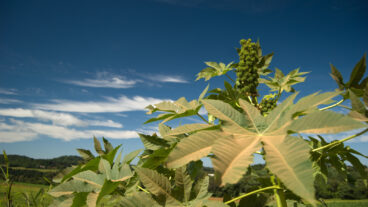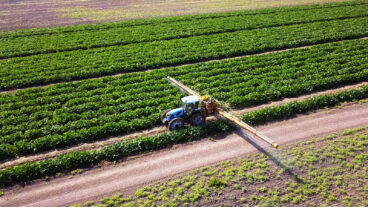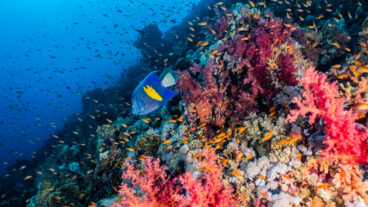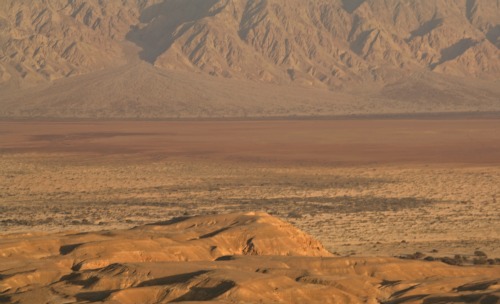
‘Desertification’ may sound like a course to end a sumptuous meal. But with just one ‘s’, it refers to fertile land becoming dry desert. Many factors contribute to the problem, such as soil erosion, climate change and groundwater mismanagement. Israel, which is 97 percent dry land, was one of the first countries to begin addressing this crisis.
“Desertification remains the orphan of global environmental problems on our planet,” declares Ben-Gurion University (BGU) of the Negev professor Alon Tal, a desert ecologist at the university’s Jacob Blaustein Institutes of Desert Research and founder of the Arava Institute for Environmental Studies.
Tal is organizing the annual International Conference on Drylands, Deserts and Desertification International Conference on Drylands, Deserts and Desertification, held from November 8 to11 at BGU’s Sde Boker campus in cooperation with the United Nations Educational, Scientific and Cultural Organization (UNESCO). More than 500 government officials and academics from 50 countries, including Palestinian and Jordanian delegates, are expected to participate.
He tells ISRAEL21c that he is heartened by the response. Despite major conventions on desertification signed at Rio de Janeiro in the 1990s, many Western countries persist in relating to the issue as a low priority, he says. The perception started to change four years ago, when the UN and the World Bank re-emphasized that desertification, a problem that affects more than 200 million people, is a major cause of global poverty and hunger.
A world leader in combating desertification
“We believe that by bringing a diverse group of academics, professionals and policy-makers together to confront the myriad critical issues of desertification, the BGU conference can serve as a meaningful catalyst for cooperative and collaborative projects in the future at the global level,” declares Tal, a North Carolina native who moved to Israel 30 years ago.
Israel is one of the few countries that has successfully restored marginal lands and is recognized worldwide as a leader in protecting its dry lands from further deterioration. The Negev desert is smaller than it was in 1948, parts of it having been transformed into a fertile breadbasket.
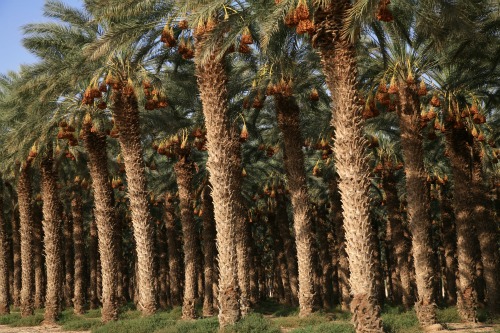
Forests thrive in places where trees never took root before and salt- and drought-resistant plants flourish, innovated by Israeli scientists. Commercial fishponds dot the desert, and algae grow abundantly for use in pharmaceuticals and health foods.
“The goal has to be to take the disadvantages of the desert and turn them into advantages,” Tal explains. Algae actually grow faster in dry regions, and the desert is the perfect setting for solar and wind power. Sun and open spaces are also attractive to eco-tourists.
Water management is a crucial part of controlling desertification. About half the water used for agriculture cycles through 240 reservoirs built by Keren Kayemeth L’Yisrael-Jewish National Fund, another key player in desertification efforts and education. Israel reuses about 74 percent of its wastewater; Spain, the second most efficient country in wastewater recycling, reuses only 20 percent.
“As the world becomes more urbanized, sewage is both a problem and an opportunity,” states Tal, who coauthored a model for an agreement on environmental cooperation between Israel and the Palestinian Authority. “We made huge mistakes and had the humility to learn from them. Now we have standards that can help other countries recycle their sewage.”
Israel’s status should be public policy
Tal gives much of the credit for all these accomplishments to Dr. Uriel Safriel, a professor of ecology at the Hebrew University of Jerusalem and the world’s leading authority on desertification.
The Ministry of Foreign Affairs chose Safriel and Tal, among other experts, to represent Israel at previous UN conventions on desertification. “The other representatives have learned to respect Israel – even the Arab countries in this forum are cooperative and there is lots of formal discussion,” Tal tells ISRAEL21c.
Attendees to the conference this year will hear presentations about the public health aspects of desertification; sustainable building in desert environments; remote sensing to assess how flora are responding to anti-desertification attempts; grazing and the Bedouin community; the future of the Dead Sea; environmental education and dry-land agriculture; and soil and water restoration.
Tal relates that the UN expects developed nations to provide assistance to developing nations, which is an ideal shared by MASHAV, the Foreign Ministry’s agency for international development, which works with ecologists and forestry experts from several countries, particularly in Africa.
“If you do nothing about desertification, people will starve and die,” Tal declares. “So there is a need for Israel’s status as a leader in this field to be expanded into public policy. We have to dig into our pockets to make the world a better place.”








